The Essential Tony Curtis
He enjoyed the sweet smell of success…
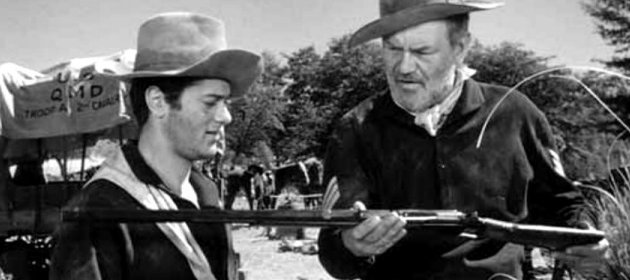
Winchester 73 (1950)
Credited as Anthony Curtis, though he was really born Bernard Schwartz, Tony makes an early appearance in one of James Stewart and director Anthony Mann’s five Westerns.
Alongside other film newbie Rock Hudson, whom he became firm friends with, Curtis appears as Doan, a young man who discovers Stewart’s all-important rifle. As Westerns go, it’s a vital, spectacular triumph, and hints at great things to come for Curtis.
Tony Trivia: In Curtis’ first film Criss Cross , shot just a year before Winchester ’73, he was credited as James Curtis. We prefer Tony.
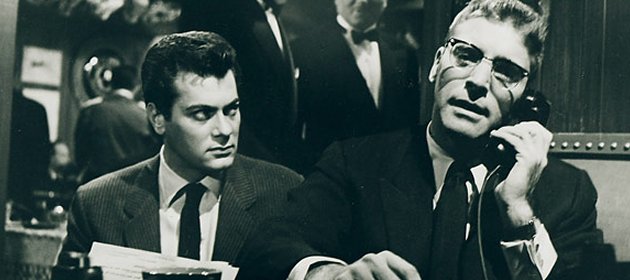
Sweet Smell Of Success (1957)
Tony hits the big time, sharing poster-space with the one and only Burt Lancaster. He had to fight against his contracted studio, Universal, for the role, having wearied of playing brawny pretty boys. That didn’t stop screaming fan girls turning out in their droves during exterior shooting, though, the crazed hoards even breaking down police barriers to get at Curtis.
“They come right up to me, right up to my face and say, 'Tony Curtis !’” the actor remembered recently. “And I say, 'Who else could it be?' I've turned it into a game for myself. I do enjoy it a lot.”
Here he plays press agent Sidney Falco, who attempts to break up a couple in order to get ahead with a national newspaper. Yeah, no more Mr Nice Guy.
Tony Trivia: Test screenings proved disastrous, as Curtis fans expected him to play his usual role. Director Alexander Mackendrick recalls people “curling up, crossing their arms and legs, recoiling from the screen in disgust”. They all came around in the end, though.
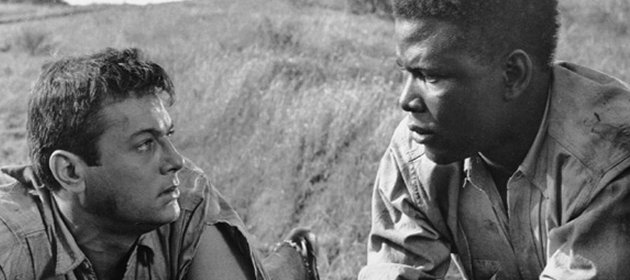
The Defiant Ones (1958)
After appearing alongside Frank Sinatra in black and white war film Kings Go Forth (a project Curtis notes as one of the “most difficult” of his career), it’s time for a racism-examining drama about two prisoners who escape a chain gang, but are shackled together.
Curtis is the racist ‘Joker’, who is tied to a black man (Sidney Poitier) he despises. Stanley Kramer, famous as one of Hollywood’s purveyors of ‘message’ movies, directed Curtis to his only ever Oscar nomination.
Tony Trivia: According to Curtis, he only landed the role of Joker when original star Robert Mitchum refused to work with a black actor.
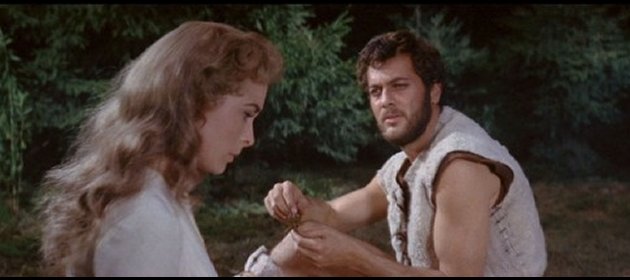
The Vikings (1958)
Tagged a “Norse Opera” by The New York Times , this Orson Welles-narrated adventure sees Curtis playing Erik, rightful heir to the Northumbrian throne but enslaved by Vikings as a child. Kirk Douglas, meanwhile, played his half-brother Einar.
“He'd pull you aside and say, ‘Well listen, um, why don't you say that line with a little more emphasis, because it will give me a little more strength to go on?’” Curtis said of his time with Douglas. “So I saw what it was, I saw exactly what it was. It was like a little kid asking me to give him what he had already. And I loved it.”
Tony Trivia: Curtis and Kirk Douglas had to endure freezing cold water while shooting in the fjord.
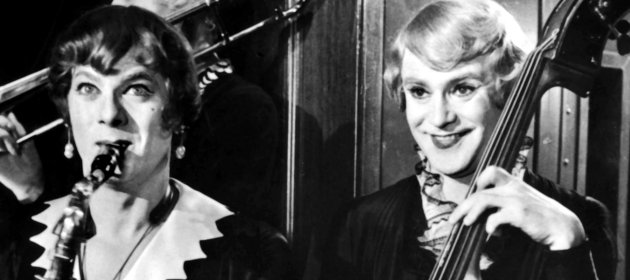
Some Like It Hot (1959)
Curtis turn his hand to full-on comedy with the help of Billy Wilder and Jack Lemmon, as he dons a wig, tights and a full face of make-up in this high concept comedy.
It still holds up today as a movie great, with Curtis and Lemmon going drag to escape grudge-bearing gangsters, while also falling head over heels (literally) for Marilyn Monroe’s singer.
Tony Trivia: Hollywood legend has it that Curtis once referred to kissing Marilyn Monroe as like “kissing Hitler”. Though he later admitted he’d cracked the joke to the film crew, Curtis remained adamant that it was all in fun.
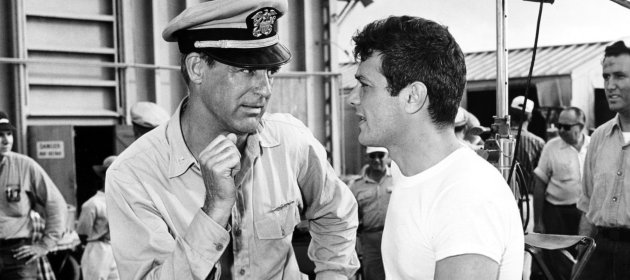
Operation Petticoat (1959)
More comedy, this time with Cary Grant, as Operation Petticoat follows the misadventures of a submarine during the beginning of World War II.
Curtis says he learned a lot from Grant: “Intelligence, the ability to take his craft and use it as a weapon if necessary. To use it as a means of getting somewhere without offending. And he was a kind, wonderful man; handsome motherfucker, smart, his timing in movies was the best. He was funny too.”
Tony Trivia: Curtis developed Operation Petticoat himself, and was delighted when Grant took his part – “to be accepted by Cary was a great Mitzvah.”
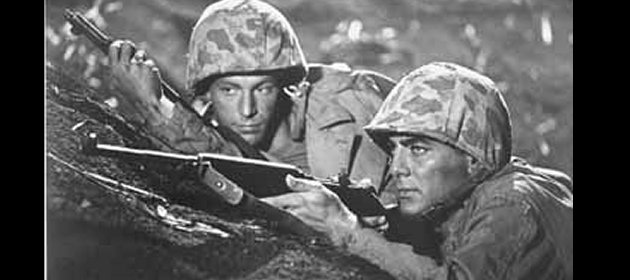
The Outsider (1961)
Curtis gives a much-celebrated performance as an Indian nicknamed ‘Chief’, who takes part in World War II and eventually helps to raise the flag at Iwo Jima.
“Tony Curtis with stained skin, changed nose and a jet-black, straight-haired wig obviously is still not a modern Pima brave,” wrote The New York Times . “But he manages to overcome most of these physical identifications to give a performance that is genuinely restrained and surprisingly effective.”
Tony Trivia: The Outsider is based on the true story of Pima Indian Ira Hayes, whose life was destroyed by the sudden fame he earned when he was revealed as one of the men who raised the Iwo flag.
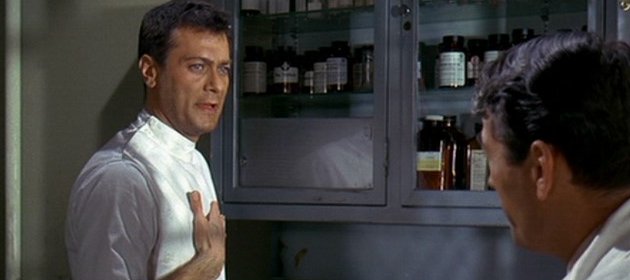
Captain Newman, M.D. (1963)
Based on Leo Rosten’s novel, this drama paired Tony with another Hollywood great in the form of Gregory Peck, whom Tony remembered “was always so gentle with everyone”.
Peck played the titular Captain, who runs a psychiatric ward in Arizona. With the help of his orderly Jackson (Curtis), he uses unconventional methods to treat his patients.
Tony Trivia: The novel of the same name is based on the experiences of Ralph Greenson, a medical officer whose most famous patients included Marilyn Monroe, Frank Sinatra, and Tony Curtis himself.
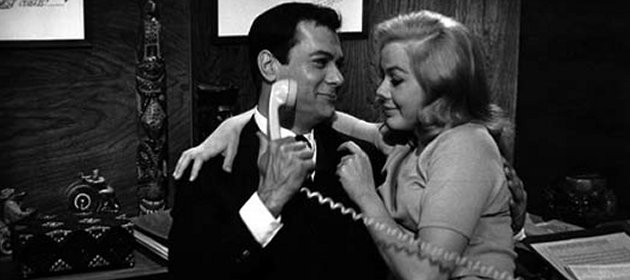
Sex And The Single Girl (1964)
Curtis gets out the blusher again for a Some Like It Hot -lampooning scene in this comedy based on the book of the same name. As Bob Weston, he’s a sleazy reporter who attempts to write an expose on a famous psychologist.
Tony didn’t mind dressing up again, though. “What made it difficult for me, as a kid, was to see how people mistreated boys who acted like girls or girls who acted like boys,” he has said. “I always found it to be an aversion that they would pick on someone because of an attitude toward their sex.”
Tony Trivia: Sex And The Single Girl was one of the top 20 highest grossing films during its year of release. It went on to inspire 2003’s Down With Love .
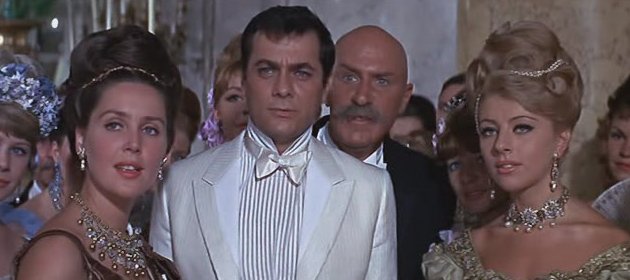
The Great Race (1965)
Heralded on its own posters as “the funniest comedy ever”, this slapstick farce drew on silent era comedies for inspiration, pairing visual gags with double entendres in its mission to fulfil its tagline prophecy.
The result is a zany, slightly headache-inducing chuckler, with Curtis putting in a fine comedic turn as stuntman Leslie ‘The Great Leslie’ Gallant III. Everybody adores Leslie, with the exception of Professor Fate (Jack Lemmon), who’s on a mission to ruin Leslie’s life.
Tony Trivia: During the pie fight scene, which took three days to shoot, Curtis’ cast mates turned on him when he emerged clean as a whistle, hurling two dozen pies his way.
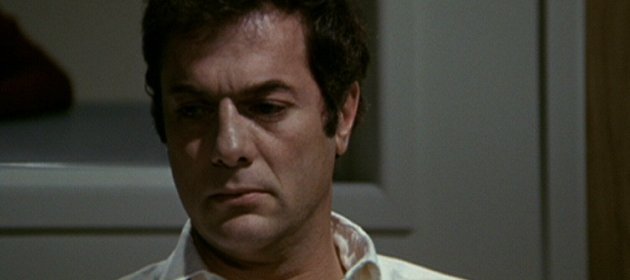
The Boston Strangler (1968)
Re-teaming with his Vikings director, Curtis takes on something altogether more sinister in this dramatisation of the real-life Boston Strangler story. In a change to Curtis’ usual routine, he plays the titular strangler, and went on to receive plaudits for taking a grittier role than was the norm.
The film suffered with critics, however, for its casual regard for factual accuracy.
Tony Trivia: Though Curtis’ performance received much praise (it’s one of his personal favourites), he wasn’t nominated for an Academy Award.
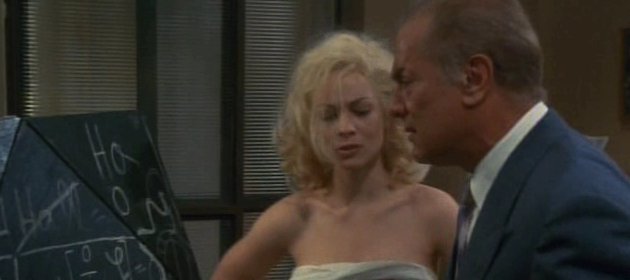
Insignificance (1985)
Pretentious or perfect? We prefer the latter, with Nicolas Roeg’s unusual, off-kilter chin-scratcher following four iconic figures in a ‘50s hotel. Curtis plays The Senator, who is roughly based on Joseph McCarthy. Characters resembling Marilyn Monroe, Albert Einstein and Joe DiMaggio are also present.
Unlike the title of this movie, Curtis has proved he will never become insignificant in the annuls of cinema history. "I was born in and worked in a period that could be called enviable,” he has said.
“Every movie I've been in has ended up on television. I've made 122 movies, and I daresay there's a picture of mine showing somewhere in the world every day.” Sir, we salute you.
Tony Trivia: In an interesting twist, Curtis actually dated the real Marilyn Monroe back in the ‘40s when they were first striving to make it in Hollywood.
Josh Winning has worn a lot of hats over the years. Contributing Editor at Total Film, writer for SFX, and senior film writer at the Radio Times. Josh has also penned a novel about mysteries and monsters, is the co-host of a movie podcast, and has a library of pretty phenomenal stories from visiting some of the biggest TV and film sets in the world. He would also like you to know that he "lives for cat videos..." Don't we all, Josh. Don't we all.
Weekly digests, tales from the communities you love, and more
You are now subscribed
Your newsletter sign-up was successful
Want to add more newsletters?

Every Friday
GamesRadar+
Your weekly update on everything you could ever want to know about the games you already love, games we know you're going to love in the near future, and tales from the communities that surround them.

Every Thursday
GTA 6 O'clock
Our special GTA 6 newsletter, with breaking news, insider info, and rumor analysis from the award-winning GTA 6 O'clock experts.

Every Friday
Knowledge
From the creators of Edge: A weekly videogame industry newsletter with analysis from expert writers, guidance from professionals, and insight into what's on the horizon.

Every Thursday
The Setup
Hardware nerds unite, sign up to our free tech newsletter for a weekly digest of the hottest new tech, the latest gadgets on the test bench, and much more.

Every Wednesday
Switch 2 Spotlight
Sign up to our new Switch 2 newsletter, where we bring you the latest talking points on Nintendo's new console each week, bring you up to date on the news, and recommend what games to play.

Every Saturday
The Watchlist
Subscribe for a weekly digest of the movie and TV news that matters, direct to your inbox. From first-look trailers, interviews, reviews and explainers, we've got you covered.

Once a month
SFX
Get sneak previews, exclusive competitions and details of special events each month!


